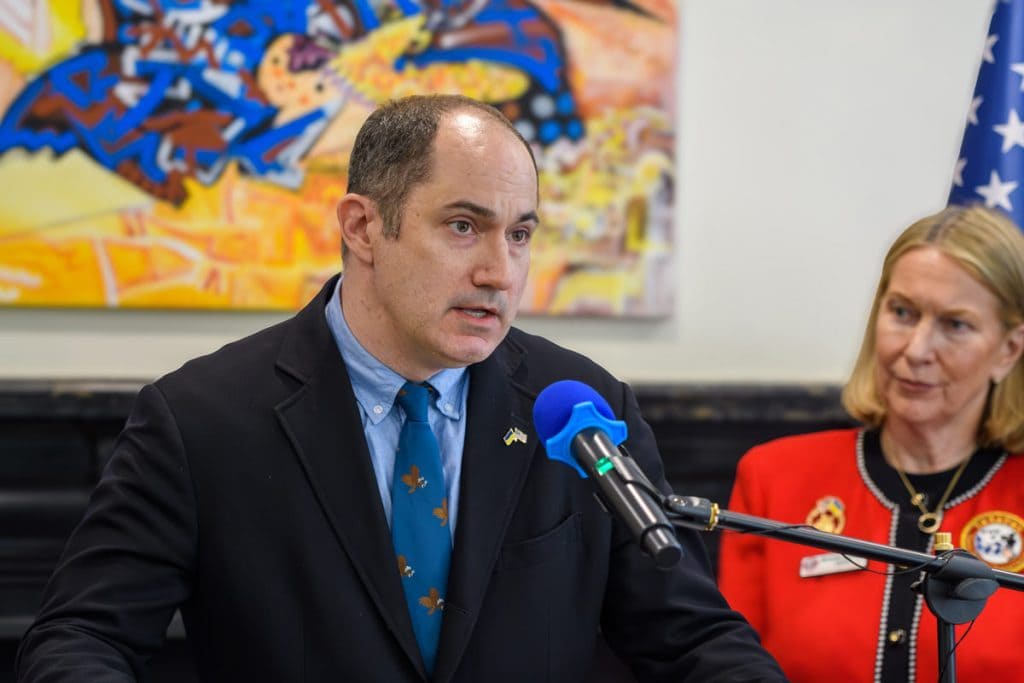By Giulio Gobbato and Bianca Bizzotto
War is a complex tangle of threads that knot together and clash with one another.
Ending it peacefully is very difficult; usually, one thread is broken in order to better untie the conflict.
Today we had the honor of meeting, via video call, Adrian Bonenberger, connected from Yale University in New Haven, Connecticut. He is a journalist and writer, as well as a storyteller of his experiences in the conflicts in Afghanistan and Ukraine, where he created intercontinental connections with local people who were interested in contributing, supporting, and helping. These two conflicts radically changed his life because of how young he was. He also said he underwent a deep transformation from witnessing the deaths of dear friends and fellow soldiers.
In the first conflict, in Afghanistan, Bonenberger served both soldiers and Afghan civilians, and thanks to this time spent away from home, he learned to appreciate his own country and the reality he lived in. He noticed the complexity of war and of finding a solution between two opposing forces. Here, the author said, the extremist faction of Afghanistan—the Taliban—won the struggle because the American soldiers left Afghan soil, which had already been stripped of its resources and protections, satisfied with their seeming victory in previous battles. The United States had far more advanced technology than their obsolete opponents; for example, they used airplanes to distribute the necessary provisions to local people so they could feed themselves during a time of extreme hardship.
After leaving the war in Afghanistan, he returned once more, this time as a Captain in the army. Understanding the situation by speaking with local citizens was one of his main duties, along with the responsibility of reassuring them and, in his own way, trying to find some agreement between the two opposing sides.
During his time in Ukraine, he was influenced by the terrorist attack of September 11, 2001, when the Al-Qaeda organization—then led by the Arab Osama bin Laden, who was later killed in an American raid—hijacked four planes with the goal of destroying major sites in New York. Bonenberger was overcome by a feeling of obligation, which he cultivated during the war in Afghanistan and expressed during the Russo-Ukrainian war, where he worked as a volunteer, training soldiers with targeted exercises to help them fight opposing forces.
If you are interested in exploring these topics further, you can read his two books “Afghan Post: A Memoir” and “The Road Ahead.” Both recount his time working in Afghanistan, written with the aim of showing the reader Bonenberger’s point of view and that of the local people, who were certainly not living joyful moments.
In conclusion, this was an incredible and valuable opportunity for the topics we have been studying in these weeks of school. War is something indescribable. It wears people down from heart to skin, ruins lands and landscapes, destroys families and friendships, leaving permanent scars.
“Learning about history means learning about you and the world.”
“Studiare la storia significa conoscere se stessi ed il mondo.”
Bianca Bizzotto, Giulio Gobbato

